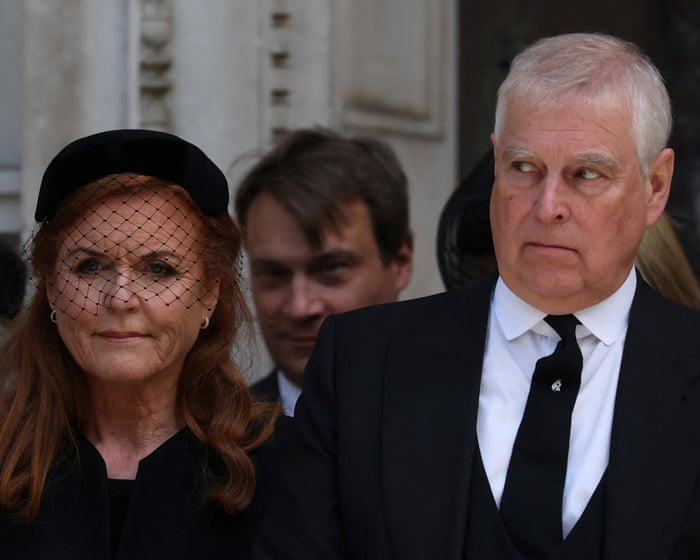A Presbyterian pastor with ties to the Lutheran Church Missouri Synod (LCMS) through various aligned or affiliated groups has a history of involvement with the neo-Confederate movement. He has spoken at events for prominent neo-Confederate organizations and publicly defended the Confederacy and its monuments.
One such group, the Council for Concerned Citizens (CCC), which hosted Colonel John Eidsmoe at a conference, was cited by racist mass murderer Dylann Roof as having influenced his radical racial views. These views led to his deadly 2015 attack on Mother Emanuel AME Church in Charleston, South Carolina.
The LCMS is the second-largest Lutheran denomination in the U.S., after the Evangelical Lutheran Church in America (ELCA). According to the Pew Research Center, about 1% of Americans, or roughly 2.6 million people, identify with the Synod, making it about half the size of the ELCA.
Eidsmoe’s connections to neo-Confederate groups have previously caused controversy for prominent Republican politicians and are the latest in a series of links between the LCMS and far-right or white supremacist individuals that have troubled the congregation since 2023.
In a phone call, Eidsmoe confirmed he is an ordained Lutheran minister currently leading a Presbyterian church in Alabama. When asked if he identifies as a neo-Confederate, he replied, “No, I would not,” but added, “I believe that there are some good values in southern culture, and I believe that the South had a constitutional right to secede.”
Eidsmoe also denied direct ties to the LCMS, stating, “I wouldn’t say there’s really any relationship with the Missouri Synod. I did speak once for Lutheran Classical College but only as a guest speaker, and I’m on the board of Lutherans for Life, which is not a Missouri Synod organization—it’s pan-Lutheran.” When informed that Lutherans for Life is a Registered Service Organization of the LCMS, he responded, “Well yes, but I mean a lot of organizations that are not Missouri Synod are nevertheless licensed in that way.”
In response to a request for comment, Rev. Roy S. Askins, LCMS managing director of editorial and theological content, wrote, “Col. John Eidsmoe is not an LCMS pastor nor a member of any LCMS congregation.” He did not address follow-up questions about Eidsmoe’s involvement with LCMS-aligned organizations.
Hours after the inquiry was sent, LCMS president Matthew Harrison posted a lengthy message on Facebook, partly stating, “A few on our far edges say untoward things about race, failing to take into account the beautiful message of the N.T. that ‘God is no respecter of persons.’ (Acts 10) And that repeatedly in the N.T. we see lists of early Christians which include multiple ethnicities from around the Mediterranean world.”
Joshua Salzberg, a member of an LCMS church and co-founder of Lutherans for Racial Justice, has been critical of the congregation’s handling of racial issues and the presence of far-right figures associated with the LCMS. He said, “When neo-Confederate figures go unchecked in LCMS spaces, it opens the door for more far-right voices to gain influence.” Salzberg added, “My hope is that there would be at least as much energy for reckoning with Neo-Confederate views that contradict the teachings of the LCMS as there is for other views that brush up against the Synod’s doctrine.”
Jeff Tischauser, a senior research analyst at the Southern Poverty Law Center (SPLC), commented on the CCC: “While the group’s influence is waning, and while its influence even within the white power movement is minimal, the CCC can still attract violent racists who the group further radicalizes, as shown with Dylann Roof. So just because it’s fractured and the influence isn’t there doesn’t mean that it’s not dangerous because of the content that it produces.”
Eidsmoe, a retired colonel in both the…John Eidsmoe, a former U.S. Air Force and Mississippi State Guard officer according to his online biographies, is an ordained pastor leading a Presbyterian church in Notasulga, Alabama. He also maintains ties with several groups connected to the Lutheran Church–Missouri Synod (LCMS).
Eidsmoe serves on the board of Lutherans for Life, an anti-abortion organization recognized as an LCMS Service Organization. His biography page has been documented online since at least 2020, indicating a board tenure of over five years. LCMS-recognized organizations operate independently but must align with the church’s mission and gain its approval.
Recently, Eidsmoe spoke at Luther Classical College in Casper, Wyoming, which was founded by LCMS members but is not formally affiliated with the denomination. The college had applied for LCMS recognition but was rejected.
He has also been listed as an adjunct professor of pastoral theology at the Institute of Lutheran Theology, which its founders describe as an innovative LCMS initiative. However, the LCMS has cautioned members against enrolling in its unauthorized online pastoral courses.
Beyond the LCMS, Eidsmoe has spoken at events organized by the Center for Apologetics and Worldviews, which is affiliated with the smaller, conservative Evangelical Lutheran Synod.
Eidsmoe has longstanding associations with the neo-Confederate movement, which includes groups that reinterpret the South’s secession to preserve slavery or advocate for a revived, segregated Confederacy. These ties have attracted national attention due to his connections with Republican figures like Roy Moore and Michele Bachmann.
He remains senior counsel at the Foundation for Moral Law, founded by Roy Moore, whose Senate campaign collapsed amid allegations of sexual misconduct with a minor. During Moore’s campaign, CNN reported on a “Secession Day” event at the foundation’s premises where Eidsmoe participated, featuring Confederate symbols.
Earlier, during the Tea Party era, Eidsmoe’s affiliations caused difficulties for both Moore and Bachmann. In 2010, he withdrew from a Tea Party speech in Wisconsin after media revealed his past engagements with neo-Confederate organizations such as the League of the South and the Council of Conservative Citizens.The League of the South, established in 1994, promotes the idea of a secessionist South governed by white supremacist principles. The CCC, a white nationalist organization formed in 1985, is considered by the Southern Poverty Law Center to be an offshoot of the white citizens councils that opposed school desegregation in the 1950s and 1960s.
Both groups have joined forces in protests against the removal of Confederate monuments. For the League of the South, this involvement peaked with their participation in the deadly 2017 Unite the Right rally in Charlottesville, Virginia.
The CCC’s propaganda on race and crime played a role in radicalizing Dylann Roof. In 2011, Eidsmoe was noted in media reports as a significant influence on Republican politician Michele Bachmann, whom he mentored while she was a student and he a professor at the fundamentalist Oral Roberts University. He was described as her “law school mentor” and reportedly shaped her belief that American law should be based on the Bible.
Despite national scandals, Eidsmoe did not abandon his far-right views. In 2019, he wrote a lengthy essay for the neo-Confederate Abbeville Institute, repeating revisionist arguments about the U.S. Civil War. He claimed slavery was not the primary reason for secession and praised Confederate president Jefferson Davis and pro-slavery figure John C. Calhoun. He argued that the South should not be judged solely on slavery and defended Confederate monuments, suggesting that removing them is an attempt to rewrite history and reshape America away from its founding principles.
The Eidsmoe connection is the latest example of far-right politics infiltrating a denomination that has traditionally kept politics at a distance. Recently, an LCMS church in Ozark, Alabama, allowed the neo-Confederate Southern Cultural Center to hold monthly meetings on its premises. In August, the group hosted Eric Orwoll, who is leading an effort to create a whites-only housing development in Arkansas. Previous speakers have included neo-Confederate pastor John Weaver and white nationalist Jared Taylor.
Historically, the LCMS has been more conservative in doctrine and scripture than the mainline ELCA but avoided partisan politics and culture wars. However, in recent years, the denomination has faced repeated controversies due to members’ ties to far-right groups.
In 2023, the LCMS gained national attention as a focus of far-right organizing. White nationalist Corey Mahler targeted the denomination, aiming to bring in “hardline young men” to replace what he called “degenerate boomers” and expel liberals. Mahler, identified by antifascist researchers as part of a “Lutefash” movement within Lutheranism, was excommunicated from his church in Knoxville, Tennessee. Another individual, Ryan Turnipseed, also linked to this tendency, was excommunicated in the same year.In May 2024, First Lutheran Church in his hometown of Ponca City, Oklahoma, excommunicated him. This followed a viral 2023 Twitter thread where he criticized the LCMS’s new catechism, claiming it included too many “woke” liberal ideas. This action briefly made him a hero among the online far right.
Shortly after, the president of the Lutheran Church-Missouri Synod urged the excommunication of individuals spreading extreme and unchristian “alt-right” beliefs.
However, just weeks after Turnipseed’s excommunication, Immanuel Lutheran Church in Wichita, Kansas, defied the ban by welcoming him as a member.
In July, The Guardian revealed that Turnipseed is a prominent member of the Old Glory Club, an antisemitic, Christian nationalist organization for men only. The club’s nationwide lodges aim to offer in-person gatherings and conferences for far-right activists.
Salzberger, a racial justice activist, commented: “As a grassroots group, Lutherans for Racial Justice aims to educate the church on these issues, helping us better identify white supremacist ideology in all its forms.”
Frequently Asked Questions
Of course Here is a list of FAQs about a pastor associated with a Lutheran church group who is also connected to the neoConfederate movement with clear and direct answers
Basic Understanding Definitions
1 What is the neoConfederate movement
Its a movement that promotes an idealized sanitized view of the Confederate States of America It often downplays or denies the central role of slavery in the Civil War and celebrates Confederate symbols framing the conflict as a struggle for states rights and Southern heritage
2 What is a Lutheran church
Lutheranism is a major branch of Protestant Christianity that follows the teachings of Martin Luther It emphasizes salvation by Gods grace through faith in Jesus Christ There are different Lutheran church groups like the Evangelical Lutheran Church in America and the Lutheran ChurchMissouri Synod
3 How can a pastor be part of both a church and this movement
A person can hold multiple identities and affiliations A pastor might see their neoConfederate views as part of their cultural or political identity which they keep separate from their religious role or they might believe their views on heritage and tradition align with their religious beliefs
Concerns and Conflicts
4 Isnt there a conflict between Christian teachings and neoConfederate beliefs
Many people see a direct conflict Core Christian teachings emphasize love for all people equality before God and justice The neoConfederate movement is often criticized for being linked to racism and white supremacy which are incompatible with the biblical message of universal love and the inherent worth of every individual
5 What are the specific concerns about a pastor holding these views
The main concerns are
Promoting Division It can create a hostile and unwelcoming environment for people of color and others who are hurt by Confederate symbolism
Misrepresenting Christianity It can make the church appear to endorse a movement with racist underpinnings damaging its witness and credibility
Causing Congregational Conflict It can split a congregation causing pain and driving members away
6 How does the Lutheran church typically address this
It depends on the specific Lutheran church body Most have social statements affirming racial justice and the equality of all people If a pastors actions or public affiliations cause scandal or violate church policies they could face discipline



